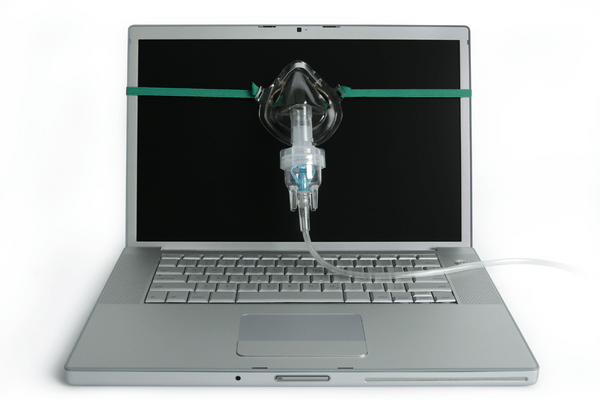You can sign up to our LinkedIn newsletter here
One of the things that I have constantly been surprised about is how, even if I go through all the logical reasons why you need to plan for your 2nd Half Career, people like you are very slow to act. It may be clear why you’re not going to be able to sustain your corporate career for the rest of your working life and why a Portfolio Executive workstyle makes absolute logical sense for you. However, I’ve come to believe that you need to engage with your heart, soul and desires in order to commit to the right decision for you?.
At a deep psychological level, the corporate relationship have is meeting some significant personal needs. I have talked to and reviewed the experiences of many, many people in full-time employment in larger organizations. They tell me about the way their corporate relationships work, the nature of the culture, the sense of being bound by golden handcuffs or trapped in a gilded cage and I’m beginning to ask myself this question:
Do I need to start to consider that many individuals in corporate employment are best considered as victims of an abusive relationship?
Those, who have either been involved in or known people who’ve got locked into relationships with an abusive partner, will understand that there is a dependency that the relationship creates which, even though the victim is suffering, keeps them trapped in the relationship even at when the abuse becomes life threatening. I’m beginning to ask myself, whether this is a useful model when we’re trying to consider the reason that people get stuck in a corporate workstyle, even though they know they are suffering day by day and that it will end in tears.
How often have you had a manager or a leader say ‘I need you to do this’? The ‘I need’ statement is the classic approach of an abuser to claim, ‘I can’t carry on without you.’ How often have managers and leader made you promise that it’ll get better which turns out to be empty? ‘Just make one more, push and we’ll get this project over the line and then we can relax.’ ‘Just hang on in there, and we will hire that person that you need to support you.’ ‘Just demonstrate persistence in your performance and you will get promotion.’ Implicit in these promises is that it will get better. Just continue to suffer for now, and it will get better.
For many people, lockdown was the trial separation that enabled them to rethink their relationship with corporate life. They started to see that life can continue without being a victim of an abusive relationship.
But any of you who have had a friend or been involved in an abusive relationship, know that that dependency created by the abuser goes very deep. In corporate life too, often, they will undermine your confidence to step out on your own. They will tie you in financially.
Often the good cop, bad cop routine will keep you emotionally confused. They’ll treat you badly, and then offer an apology or perhaps some reward: a bonus, a staff away day or the fulsome praise that keeps you yanked back and forth between hope and despair, fear and comfort.
And sadly, many victims of abusive relationships, return to their abuser. After lockdown, you may have seen a different way of living but when your employer said ‘you must come back. We need you to come back. If you don’t come back, all these dreadful things will happen.’ Did you return to a toxic culture, to overwork, to endless promises that it will be better sometime… never?
Perhaps you’re wondering why you’re staying on a corporate treadmill. You realise that logic demonstrates that your 2nd Half Career, could be more rewarding, more enjoyable and more sustainable but you have yet to make the break. Then ask yourself to what extent you have taken on the role of victim in an abusive relationship? To what extent have you bought into the belief that without your abuser you can’t make your life work? To what extent is there something deep within you that’s being fed by the way you’re being treated in this relationship?
Is the relationship reinforcing your sense of lack of worth so you suffer from Imposter Syndrome? Or is it because you feel that while you’re needed, then you’re valued but if you’re not needed you will have no value? Are you still believing new promises, even though your experience is they are unlikely to be fulfilled?
If you doubt whether you are in an abusive relationship, just go and have a look at websites that seek to help people who are on the journey of exiting an abusive relationship. Look at the indicators of co-dependency and ask yourself to what extent you are making bad choices. Consider if you are imprisoned in the toxic culture of an abusive corporate relationship because you are too afraid to leave. Do you believe at a deeply subconscious level that you can’t survive without your abuser?
Maybe you believe I am overstating the case. Perhaps you think I am dishonouring the trials of victims of violent domestic abuse with this comparison. But I remain puzzled by the emotional pull of corporate employment that too often defies logic. Perhaps, I should expect to be attacked for these ideas: the Karpman drama triangle warns of how easily the roles of victim, persecutor and rescuer can be interchanged. Check out https://en.wikipedia.org/wiki/Karpman_drama_triangle and reflect on your reactions to my suggestions. I challenge you to consider your immediate response.

Charles McLachlan is the founder of FuturePerfect and on a mission to transform the future of work and business. The Portfolio Executive programme is a new initiative to help executives build a sustainable and impactful second-half-career. Creating an alternative future takes imagination, design, organisation and many other thinking skills. Charles is happy to lend them to you.
